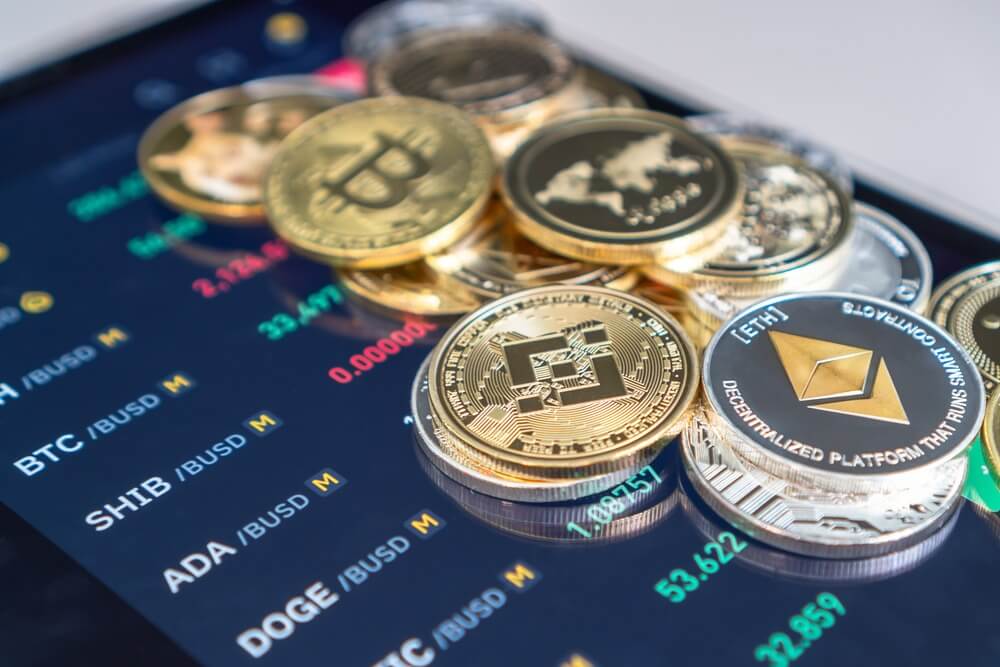
Your Gateway to the Crypto World: Navigating Bitcoin Exchanges
In today’s rapidly evolving digital landscape, cryptocurrencies have taken the financial world by storm. Among the numerous cryptocurrencies available, Bitcoin remains the undisputed leader. As interest in cryptocurrencies continues to surge, so does the need for reliable and efficient platforms to buy, sell, and trade them. This is where Bitcoin exchanges come into play. In this comprehensive guide, we will delve into the intricate world of Bitcoin exchanges, exploring what they are, how they work, and how you can navigate them seamlessly to enter the captivating realm of cryptocurrencies.
Understanding Bitcoin Exchanges
Bitcoin exchanges are online platforms that facilitate the trading of cryptocurrencies. These exchanges serve as intermediaries, connecting buyers with sellers from around the world. Chrominator which is an Online trading platform allows them to exchange various cryptocurrencies, including Bitcoin, for traditional fiat currencies like the US Dollar or Euro. They play a pivotal role in the cryptocurrency ecosystem, providing a secure and user-friendly environment for traders and investors.
Types of Bitcoin Exchanges
- Centralized Exchanges: These are the most common type of exchanges. They operate as intermediaries, holding custody of users’ funds and executing trades on their behalf. Examples include Coinbase, Binance, and Kraken.
- Decentralized Exchanges (DEXs): DEXs operate without a central authority. They allow peer-to-peer trading directly between users, enhancing privacy and control over funds. Uniswap and PancakeSwap are popular examples of DEXs.
- Peer-to-Peer Exchanges: These platforms connect buyers and sellers directly, without an intermediary. Users can negotiate prices and payment methods. LocalBitcoins and Paxful are prominent P2P exchanges.
Key Factors to Consider
When choosing a Bitcoin exchange, several factors should guide your decision:
- Security and Reputation
Prioritize exchanges with robust security measures, including two-factor authentication (2FA) and cold storage for funds. Research the exchange’s reputation in the cryptocurrency community to ensure it has a track record of reliability.
- User Interface and Experience
A user-friendly interface can significantly enhance your trading experience. Choose an exchange that provides clear navigation, real-time charts, and easy order placement.
- Supported Coins
While Bitcoin is the primary focus, consider an exchange that also supports other cryptocurrencies you might be interested in trading.
- Fees and Trading Options
Examine the fee structure of the exchange, including trading fees, withdrawal fees, and deposit methods. Some exchanges offer advanced trading options like margin trading and futures contracts.
- Liquidity
Opt for exchanges with high liquidity, as this ensures that you can easily buy or sell Bitcoin without significant price fluctuations.
Getting Started on a Bitcoin Exchange
- Sign Up: Create an account on your chosen exchange by providing the necessary information and verifying your identity.
- Secure Your Account: Enable two-factor authentication (2FA) to add an extra layer of security to your account.
- Deposit Funds: Deposit your desired amount of funds using the available payment methods.
- Navigate the Interface: Familiarize yourself with the exchange’s interface. Most exchanges offer a trading dashboard with real-time price charts and order books.
- Place Orders: Choose between market orders (executed immediately at the current market price) and limit orders (executed at a specific price). Enter the amount of Bitcoin you wish to buy or sell.
- Execute Trades: Once your order is placed, the exchange will match it with an appropriate buy or sell order from another user.
- Secure Your Bitcoins: If you’re not actively trading, consider transferring your Bitcoins to a secure wallet to prevent exposure to potential hacks.
Staying Informed and Updated
The cryptocurrency market is dynamic and ever-changing. To make informed trading decisions, keep these points in mind:
- Market Analysis
Regularly monitor market trends and perform technical and fundamental analyses to predict price movements.
- News and Developments
Stay updated with the latest news and developments in the cryptocurrency space. News events can have a significant impact on prices.
- Risk Management
Cryptocurrency trading is inherently risky. Only invest what you can afford to lose, and consider diversifying your investment portfolio.
Conclusion
In conclusion, entering the captivating world of cryptocurrencies through Bitcoin exchanges offers exciting opportunities for financial growth and technological exploration. By understanding the types of exchanges, key factors to consider, and the essential steps to get started, you can navigate this complex landscape with confidence. Remember that while trading cryptocurrencies can be profitable, it requires thorough research, risk management, and a commitment to staying informed. With the right knowledge and a reliable Bitcoin exchange by your side, you can embark on your journey into the crypto world with optimism and enthusiasm.




